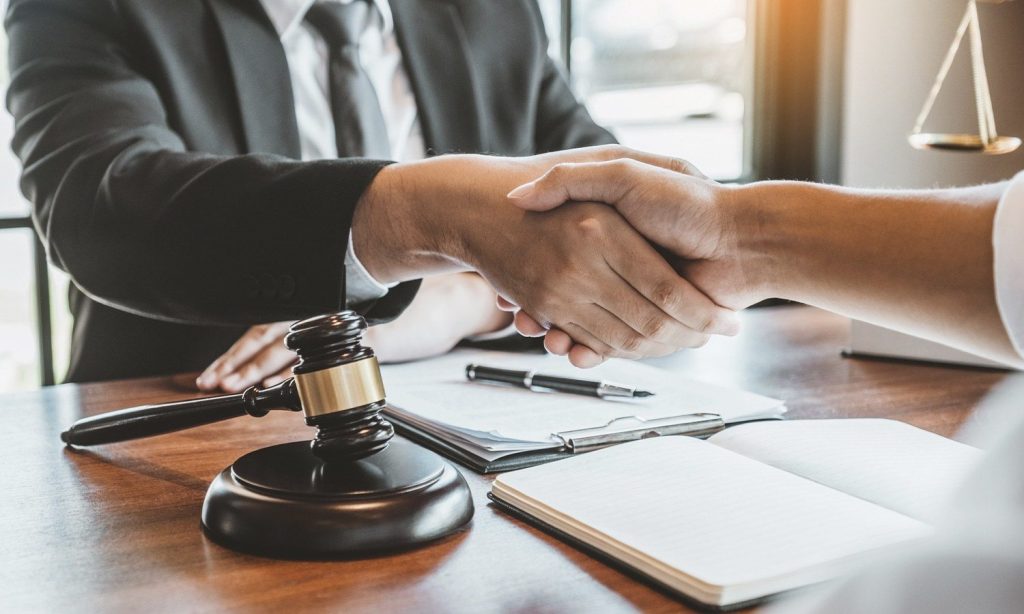In a world where conflicts and disputes seem to be an inevitable part of life, finding a resolution that satisfies all parties involved can often feel like an elusive goal. However, there is a powerful tool that can help settle conflicts in a fair and efficient manner – External Dispute Resolution (EDR).
Whether it’s a disagreement between two individuals, a business dispute, or a community conflict, EDR offers a neutral and unbiased platform for resolving conflicts outside of the traditional court system. By providing a structured process, skilled mediators, and a commitment to fair outcomes, EDR can help bring a sense of closure and restore harmony to even the most contentious situations.
In this article, we will explore the benefits of EDR, discuss different types of dispute-resolution mechanisms, and shed light on how this approach can be advantageous for individuals, organizations, and communities alike. If you’re seeking a peaceful and effective way to settle conflicts, read on to discover how EDR can be your secret weapon in finding resolutions.
Understanding External Dispute Resolution
External Dispute Resolution (EDR) is a method of resolving conflicts and disputes without going to court. It provides an alternative way for parties to come to a mutually agreeable resolution with the assistance of an impartial third party. EDR can be used in a wide range of situations, from personal disputes to complex commercial conflicts.

There are several key principles that underpin the External Dispute Resolution process. Firstly, it is voluntary, meaning that all parties must agree to participate in the resolution process. Secondly, EDR provides a confidential and private setting for discussions, allowing for open and honest communication. Lastly, EDR is non-binding, meaning that the outcome of the process is not legally enforceable unless all parties reach a formal agreement.
Understanding the basics of EDR is important because it sets the stage for a successful resolution. By choosing EDR as a means to settle conflicts, individuals, organizations, and communities can take control of the situation and work towards a fair and satisfactory outcome.
The Importance of Resolving Conflicts
Conflicts and disputes can have a significant impact on individuals, organizations, and communities. They can lead to strained relationships, loss of productivity, financial losses, and even harm to one’s mental and emotional well-being. Resolving conflicts in a timely and effective manner is crucial for maintaining harmony and fostering positive relationships.
One of the key benefits of EDR is its ability to address conflicts early on, before they escalate into more serious disputes. By providing a structured process and skilled mediators, EDR can help parties identify the root cause of the conflict, explore different perspectives, and find mutually agreeable solutions. This proactive approach not only saves time and resources but also allows for a more amicable resolution, preserving relationships and preventing further damage.
Furthermore, resolving conflicts through EDR promotes a culture of collaboration and problem-solving. It encourages parties to work together towards a common goal, rather than engaging in adversarial and confrontational tactics. This shift in mindset can lead to long-term benefits, such as improved communication, increased trust, and strengthened relationships.
Types of Conflicts That Can Be Resolved Through External Dispute Resolution
External Dispute Resolution can be applied to a wide range of conflicts and disputes. Here are some common types of conflicts that can benefit from the External Dispute Resolution process:
1. Personal disputes: EDR can help individuals resolve conflicts with family members, neighbors, landlords, or other individuals with whom they have a disagreement. Whether it’s a noisy neighbor, a property dispute, or a family disagreement, EDR provides a neutral and structured platform for finding resolutions.
2. Workplace conflicts: Conflicts in the workplace can be detrimental to both individuals and organizations. EDR can be used to address issues such as harassment, discrimination, disputes between colleagues, or conflicts between employees and management. By involving an impartial mediator, EDR can help parties find common ground and reach a resolution that is fair and satisfactory to all.

3. Business disputes: EDR is particularly beneficial for businesses as it offers a cost-effective and efficient way to resolve conflicts. Whether it’s a contract dispute, disagreement with suppliers or customers, or conflicts between business partners, EDR can provide a neutral and unbiased environment for resolving the issue, thus minimizing the impact on the business and preserving important relationships.
4. Community conflicts: In communities, conflicts can arise over various issues such as land use, development projects, noise complaints, or disputes between residents. EDR can be used to facilitate dialogue, address concerns, and find mutually acceptable solutions that benefit the community as a whole.
By understanding the different types of conflicts that can be resolved through EDR, individuals, organizations, and communities can better appreciate the versatility and effectiveness of this approach.
How External Dispute Resolution Works
External Dispute Resolution follows a structured process that is designed to facilitate open and constructive discussions between the parties involved. While the exact steps may vary depending on the specific EDR provider and the nature of the conflict, the general process typically involves the following stages:
1. Initial assessment:
At the outset, the EDR provider assesses the suitability of the conflict for resolution through EDR. This involves considering factors such as the complexity of the dispute, the willingness of the parties to participate, and the potential for a mutually agreeable outcome.
2. Pre-mediation stage:
Before the first formal mediation session, the mediator may engage in preliminary discussions with each party individually to understand their concerns, interests, and desired outcomes. This stage helps the mediator gain insights into the dynamics of the conflict and prepare for the mediation session.
3. Mediation session(s):
Mediation sessions are the heart of the External Dispute Resolution process. They typically involve all parties coming together in a neutral and private setting, facilitated by the mediator. During these sessions, each party is given an opportunity to express their perspective, listen to the perspectives of others, and explore potential solutions. The mediator acts as a neutral facilitator, ensuring that the discussions remain respectful and focused on finding resolutions.

4. Agreement and closure:
If the parties are able to reach a mutually acceptable resolution, the mediator will help document the agreement in writing. This agreement is not legally binding unless the parties choose to make it so. However, having a written agreement can provide clarity and serve as a reference point for future interactions. If no agreement is reached, the parties can explore other avenues for resolution, such as arbitration or litigation.
By following this structured process, EDR helps parties navigate the complexities of conflicts and work towards a resolution that meets their needs and interests.
Benefits of External Dispute Resolution
External Dispute Resolution offers numerous benefits that make it an attractive option for settling conflicts. Here are some key advantages:
1. Speed and efficiency:
EDR is generally faster than traditional court proceedings, which can be lengthy and time-consuming. By providing a structured process and skilled mediators, EDR allows parties to focus on the core issues and work towards a resolution in a time-efficient manner.
2. Cost-effectiveness:
EDR is often more cost-effective than going to court, as it eliminates the need for legal representation, extensive paperwork, and court fees. This makes it an accessible option for individuals, small businesses, and community organizations with limited resources.
3. Confidentiality:
EDR provides a confidential and private setting for discussions, allowing parties to express their concerns openly without fear of public scrutiny. This confidentiality fosters trust and encourages parties to engage in productive conversations.

4. Preservation of relationships:
Unlike adversarial legal proceedings, EDR promotes cooperation and collaboration. By focusing on finding common ground and mutually acceptable solutions, EDR helps preserve relationships, which is particularly important in personal and business settings.
5. Flexibility and control:
EDR allows parties to have more control over the resolution process. They can actively participate in discussions, propose solutions, and shape the outcome. This flexibility empowers parties and increases the likelihood of a resolution that is satisfactory to all.
By considering these benefits, individuals, organizations, and communities can make an informed decision to pursue EDR as a means to settle conflicts in a fair and efficient manner.
Finding the Right External Dispute Resolution Provider
Choosing the right EDR provider is crucial for a successful resolution. Here are some factors to consider when selecting an EDR provider:
1. Expertise and experience: Look for an EDR provider with a track record of successfully resolving conflicts similar to yours. Consider their experience, qualifications, and expertise in the specific area of your dispute.
2. Neutrality and impartiality: Ensure that the EDR provider is neutral and unbiased. This is essential for maintaining the integrity of the resolution process and ensuring fair outcomes.
3. Reputation and referrals: Seek recommendations and referrals from trusted sources, such as colleagues, friends, or legal professionals. Research the reputation of the EDR provider and read reviews or testimonials from past clients.
4. Cost and accessibility: Consider the cost of the EDR services and whether it aligns with your budget. Also, evaluate the accessibility of the EDR provider in terms of location, availability, and willingness to accommodate your specific needs.
5. Compatibility and communication: Evaluate the compatibility and communication style between you and the EDR provider. Effective communication is key to successful resolution, so ensure that you feel comfortable expressing your concerns and that the EDR provider is responsive to your needs.
By carefully considering these factors, you can select an EDR provider that is best suited to help you navigate the resolution process and find a satisfactory outcome.
The Role of Mediation in External Dispute Resolution
Mediation is a key component of the External Dispute Resolution process. It involves a trained mediator facilitating discussions between the parties involved in the conflict. The mediator acts as a neutral third party, helping the parties communicate effectively, identify underlying interests, and explore potential solutions.
The role of the mediator is multifaceted. They create a safe and respectful environment for dialogue, ensuring that all parties have an opportunity to express their views and be heard. The mediator also helps parties identify common ground, bridge differences, and generate creative options for resolution.

Mediators are skilled in managing emotions and defusing tension, which is particularly important in highly charged conflicts. They employ active listening techniques, ask clarifying questions, and encourage parties to consider the perspectives of others. Through their guidance and support, mediators facilitate a collaborative process that empowers parties to find resolutions in a constructive manner.
Mediation is often considered a win-win approach to conflict resolution. It allows parties to maintain control over the outcome and work towards a solution that satisfies their interests. It also promotes understanding, empathy, and improved communication, which can have long-term positive effects on relationships.
Case Studies: Successful Resolutions Through External Dispute Resolution
To highlight the effectiveness of EDR, let’s explore a few case studies where conflicts were successfully resolved through this approach:
1. Personal dispute:
Sarah and John were neighbors who had a long-standing disagreement over a shared fence. The dispute had escalated to the point where communication had completely broken down. Through EDR, Sarah and John were able to sit down with a mediator and express their concerns. With the help of the mediator, they agreed to split the cost of repairing the fence and developed a schedule for its maintenance. This resolution not only addressed the immediate issue but also restored neighborly relations.
2. Workplace conflict:
Emma and James were colleagues who had been assigned to work together on a project. However, their conflicting work styles and communication issues led to frequent disagreements. EDR provided them with an opportunity to articulate their concerns and identify areas of common ground. With the guidance of a mediator, Emma and James developed a communication plan and agreed to collaborate on specific tasks. This resolution not only improved the working relationship between Emma and James but also enhanced the overall productivity of the team.
3. Business dispute:
A small business owner, Lisa, was facing a disagreement with a supplier over the quality of goods delivered. Rather than resorting to costly litigation, Lisa chose to pursue EDR. Through the mediation process, Lisa and the supplier were able to reach a compromise – the supplier agreed to replace the faulty goods, and Lisa agreed to pay a reduced amount. This resolution not only saved both parties time and money but also preserved their ongoing business relationship.
These case studies illustrate the power of EDR in bringing about successful resolutions that meet the needs and interests of all parties involved.
How to Prepare for External Dispute Resolution
Preparing for EDR can significantly increase the likelihood of a successful resolution. Here are some tips to help you prepare:
1. Clarify your goals: Determine your desired outcome and what you hope to achieve through EDR. This clarity will guide your discussions and help you evaluate potential solutions.
2. Gather relevant information: Collect any documents, contracts, or evidence that may be relevant to the resolution process. This will enable you to present your case effectively and support your arguments.
3. Identify your concerns and interests: Reflect on the underlying concerns and interests that are driving the conflict. This will help you articulate your needs and engage in productive discussions.
4. Consider potential solutions: Brainstorm potential solutions that could address the conflict. Be open to creative options and consider the interests of all parties involved.
5. Maintain a constructive mindset: Approach EDR with a willingness to listen, understand, and find common ground. Focus on the future and the potential for a mutually satisfactory resolution.
By following these preparation tips, you can enter the External Dispute Resolution process with clarity, confidence, and a proactive mindset.
Conclusion
External Dispute Resolution (EDR) offers a powerful and effective alternative to traditional court proceedings for resolving conflicts. By providing a neutral and structured platform, skilled mediators, and a commitment to fair outcomes, EDR can help individuals, organizations, and communities find resolution in a timely and satisfactory manner.
From personal disputes to complex business conflicts, EDR can address a wide range of conflicts and promote collaboration, understanding, and preservation of relationships. The benefits of EDR, such as speed, cost-effectiveness, confidentiality, and control, make it an attractive option for those seeking a peaceful and efficient resolution.
By understanding the External Dispute Resolution process, considering the different types of conflicts that can be resolved through EDR, and finding the right EDR provider, individuals, organizations, and communities can harness the power of external dispute resolution to settle conflicts, restore harmony, and pave the way for a brighter future. So, whether you’re facing a disagreement with a neighbor, a workplace conflict, or a complex business dispute, consider EDR as your secret weapon in finding resolutions.
See also: 4 Fit Ideas To Help You Keep Up Your Fitness Level
Looking for a custom-made style for you, your wife/hubby, or your kids? Were here for you..! Contact us today to have us tailor a dress for you.
Keep up to date with Stylish Gwin Africa on any of these links: Facebook, Instagram, Pinterest, and Twitter. Chat on Whatsapp






























